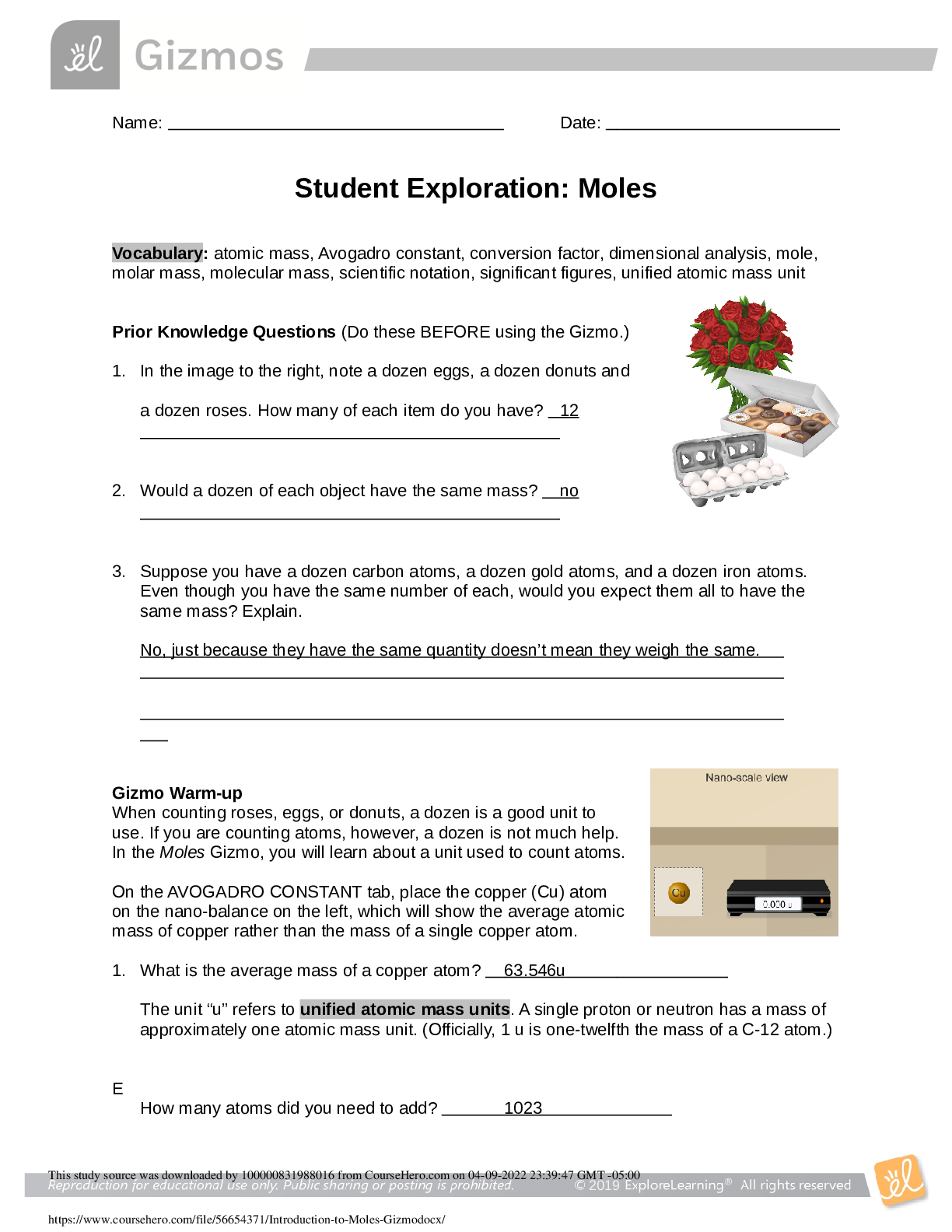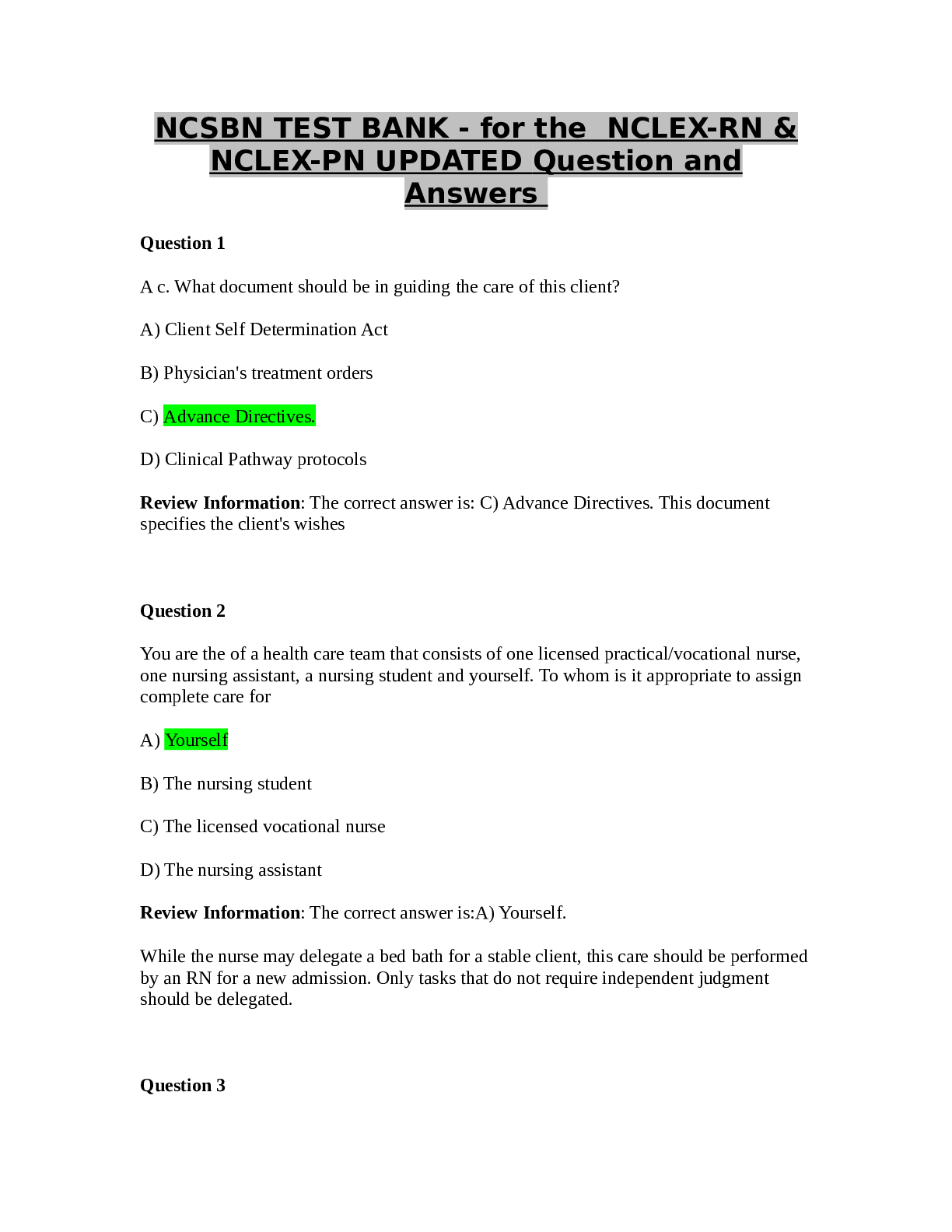Health Care > EXAM > Florida State College - NUR 1025C Study Guide for Test 2 Possible Questions. (All)
Florida State College - NUR 1025C Study Guide for Test 2 Possible Questions.
Document Content and Description Below
Florida State College - NUR 1025C Study Guide for Test 2 Possible Questions.1. Ethanol (alcohol) is a powerful teratogen that can have devastating effects on the developing fetus (e.g., fetal alcohol... syndrome). Women who are pregnant or considering pregnancy should totally abstain from alcohol ( Cunningham, Leveno, Bloom, et al., 2010). The nurse cautions that the consumption of as few as ________ alcoholic drink(s) during pregnancy can lead to the loss of fetal brain cells. ANS: 2 Studies have shown that even as few as two alcoholic drinks consumed during pregnancy can cause loss of fetal brain cells. A drink is defined as 12 oz of beer, 5 oz of wine, or 1.5 oz of liquor. The nurse is working in a prenatal clinic with a woman who admits to drinking a glass of wine with dinner. The nurse should teach the client that: 1. the mother could bleed during labor. 2. wine is acceptable to drink during pregnancy. 3. wine does not cause fetal anomalies. 4. the baby could experience fetal alcohol syndrome. Bleeding during labor is not a complication of drinking wine. Wine is an alcoholic beverage, and should not be ingested during pregnancy. Wine can cause fetal anomalies. Fetal alcohol syndrome can result from ingesting wine or liquor during pregnancy. A community health nurse is providing a class for pregnant women about the dangers of alcohol consumption during pregnancy. Which of the following would the nurse include as an effect on the newborn? Select all that apply. A) Intellectual impairment B) Low-birth-weight C) Leukemia D) Respiratory distress E) Altered growth and development F) Childhood cancers Which statement, if made by a pregnant adolescent, indicates that she understands her increased risk of physiologic complications during pregnancy? 1. “Smoking and using crack cocaine won’t harm my baby.” 2. “My anemia and eating mostly fast food are not important.” 3. “It’s no big deal that I started prenatal care in my seventh month.” 4. “I need to take good care of myself so my baby doesn’t come early.” Pregnant adolescents are at great risk for complications such as pregnancy-induced hypertension, anemia, preterm birth, low-birth-weight infants, fetal harm from cigarette smoking, alcohol consumption, or the use of street drugs. Pregnant adolescents are at great risk for complications such as anemia. Early and regular prenatal care is the best intervention to prevent complications or to detect them early, to minimize the harm to both the teen and her fetus. The nurse is doing preconception counseling with a 28-year-old woman with no prior pregnancies. Which client statement indicates that teaching has been effective? 1. “A beer once a week will not damage the fetus.” 2. “I can continue to drink alcohol until I am diagnosed as being pregnant.” 3. “I can drink alcohol while breastfeeding since it does not pass into breast milk.” 4. “I need to stop drinking alcohol completely when I start trying to get pregnant.” 1. It is not known how much alcohol will cause fetal damage; therefore, alcohol during pregnancy is contraindicated. 2. Women should discontinue drinking alcohol when they start to attempt pregnancy. 3. Breastfeeding generally is not contraindicated, although alcohol is excreted in breast milk. Excessive alcohol consumption may intoxicate the infant and inhibit the maternal letdown reflex. 4. Because birth defects that are related to fetal alcohol exposure can occur in the first 3 to 8 weeks’ gestation, often before the woman even knows she is pregnant, women should discontinue drinking alcohol when they start to attempt pregnancy. The nurse is caring for a patient that is actively trying to conceive a child but continues to drink alcohol. The patient states that she'll stop drinking once she is pregnant. What is the most appropriate response by the nurse? a. "Abstaining is best since most fetal development occurs before you realize you are pregnant." b. "Small amounts of alcohol are safe at any time during pregnancy." c. "Things will be okay if you quit drinking alcohol once you know you are pregnant." d. "Alcohol use should be avoided early in pregnancy but is acceptable past week 20." Rapid development occurs before many women know that they are pregnant, making alcohol consumption unsafe at any time during pregnancy. 2. One problem that can interfere with milk consumption is lactose intolerance, the inability to digest milk sugar (lactose) caused by the lack of the lactase enzyme in the small intestine. It is relatively common in adults, particularly African-Americans, Asians, Native Americans, and Inuits (Alaska Natives). Milk consumption can cause abdominal cramping, bloating, and diarrhea in such people, although many lactose-intolerant individuals can tolerate small amounts of milk without symptoms. The nurse is discussing food allergies with a group of mothers whose children are allergy prone. Which of the following statements made by a mother best describes lactose intolerance? 1. “My child is allergic to milk; it makes her very gassy.” 2. “Dairy products require a special enzyme to be digested properly.” 3. “Being lactose intolerant means my child can’t tolerate dairy products.” 4. “My child gets diarrhea from dairy products because she can’t digest lactose.” Food intolerance is not an allergy, but a particular food that causes the body distress within a few hours of ingestion. The result is diarrhea, cramps, or flatulence. For example, people who drink cow’s milk who have these symptoms are not allergic to milk but lack the enzyme needed to digest the milk sugar lactose; they are lactose intolerant. To be lactose intolerant (exhibiting the signs after ingesting dairy products) does not constitute a dairy allergy. The remaining options are not as specific as the answer. The nurse is discussing food allergies with a group of mothers whose children are allergy prone. Which of the following statements made by the nurse best describes lactose intolerance? 1. “If milk causes diarrhea, cramps, or gas, it might be an intolerance of lactose.” 2. “You don’t have to be allergic to dairy for it to cause you problems.” 3. “Allergies to milk can be very dangerous, even life threatening.” 4. “Many children outgrow their intolerance of dairy lactose.” The traditional diet of Asian women includes little meat and few dairy products and may be low in calcium and iron. The nurse can help a client increase her intake of these foods by which action? a. Suggest that she eat more tofu, bok choy, and broccoli. b. Suggest that she eat more hot foods during pregnancy. c. Emphasize the need for increased milk intake during pregnancy. d. Tell her husband that she must increase her intake of fruits and vegetables for the baby’s sake. The diet should be improved by increasing foods acceptable to the woman. These foods are common in the Asian diet and are good sources of calcium and iron. Pregnancy is considered hot; therefore, the woman would eat cold foods. Because milk products are not part of this woman’s diet, it should be respected and other alternatives offered. Also, lactose intolerance is common. Fruits and vegetables are cold foods and should be included in the diet. In regard to the family dynamics, however, the husband does not dictate to the wife in this culture. 3. Patient Teaching: Iron Supplementation A diet rich in vitamin C (in citrus fruits, tomatoes, melons, and strawberries) and heme iron (in meats) increases the absorption of iron supplement; therefore include these in the diet often. Bran, tea, coffee, milk, oxalates (in spinach and Swiss chard), and egg yolk decrease iron absorption. Avoid consuming them at the same time as the supplement. Iron is absorbed best if it is taken when the stomach is empty; that is, take it between meals with a beverage other than tea, coffee, or milk. Iron can be taken at bedtime if abdominal discomfort occurs when it is taken between meals. If an iron dose is missed, take it as soon as it is remembered if that is within 13 hours of the scheduled dose. Do not double up on the dose. Keep the supplement in a childproof container and out of the reach of any children in the household. The iron may cause stools to be black or dark green. Constipation is common with iron supplementation. A diet high in fiber with adequate fluid intake is recommended. A patient will be taking oral iron supplements at home. The nurse will include which statements in the teaching plan for this patient? (Select all that apply.) a. Take the iron tablets with meals. b. Take the iron tablets on an empty stomach 1 hour before meals. c. Take the iron tablets with an antacid to prevent heartburn. d. Drink 8 ounces of milk with each iron dose. e. Taking iron supplements with orange juice enhances iron absorption. f. Stools may become loose and light in color. g. Stools may become black and tarry. h. Tablets may be crushed to enhance iron absorption. [Show More]
Last updated: 2 years ago
Preview 1 out of 64 pages
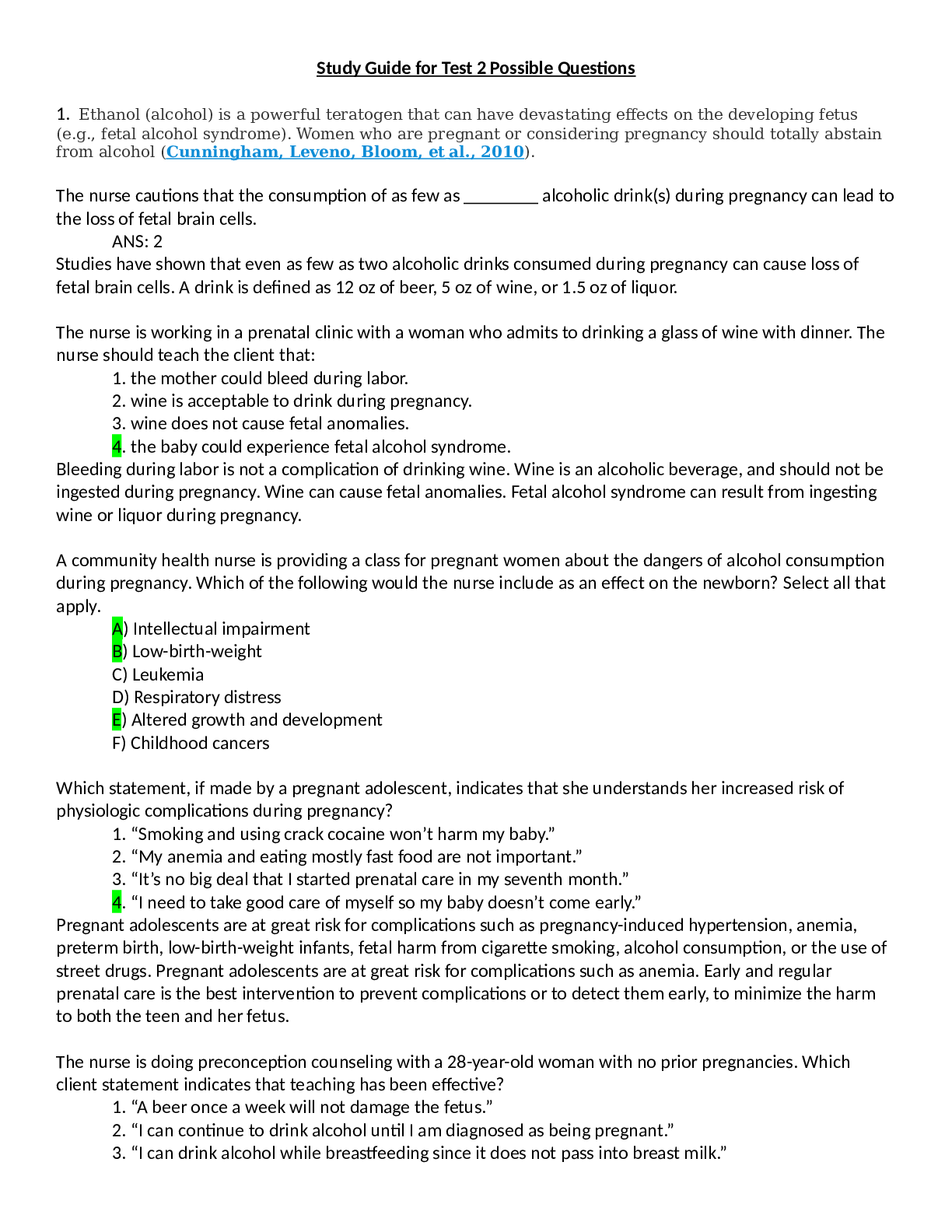
Buy this document to get the full access instantly
Instant Download Access after purchase
Buy NowInstant download
We Accept:

Reviews( 0 )
$18.00
Can't find what you want? Try our AI powered Search
Document information
Connected school, study & course
About the document
Uploaded On
Jun 22, 2021
Number of pages
64
Written in
Additional information
This document has been written for:
Uploaded
Jun 22, 2021
Downloads
0
Views
51


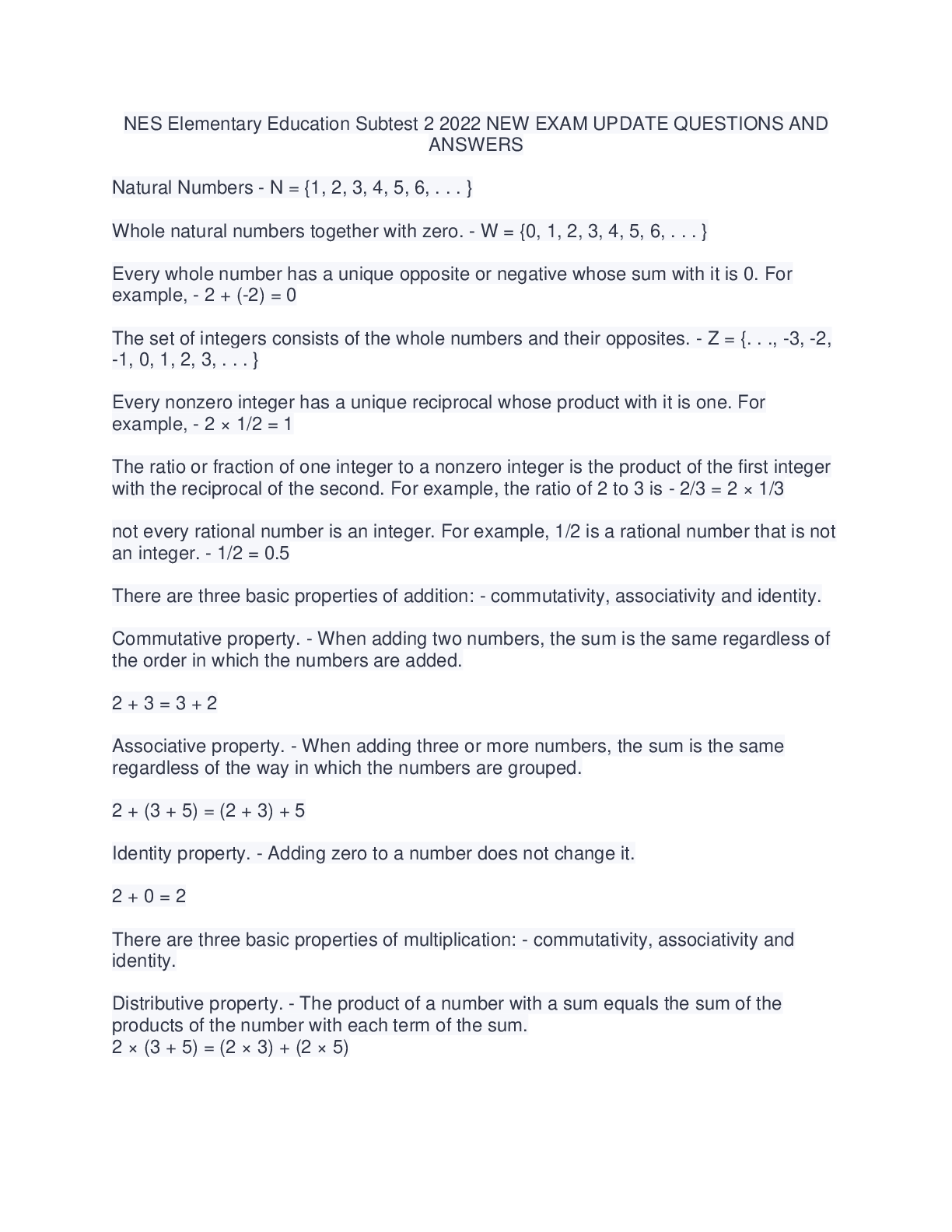
.png)

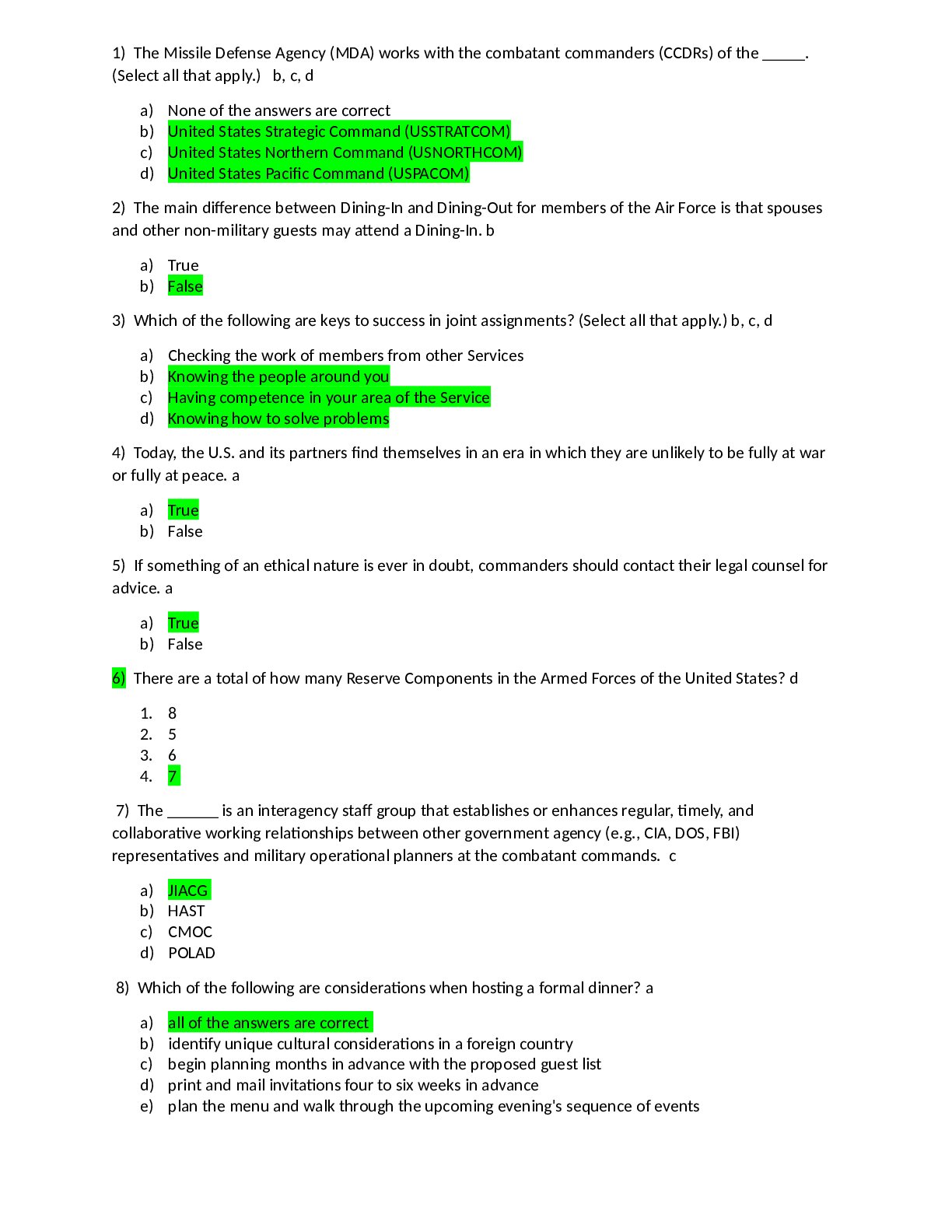
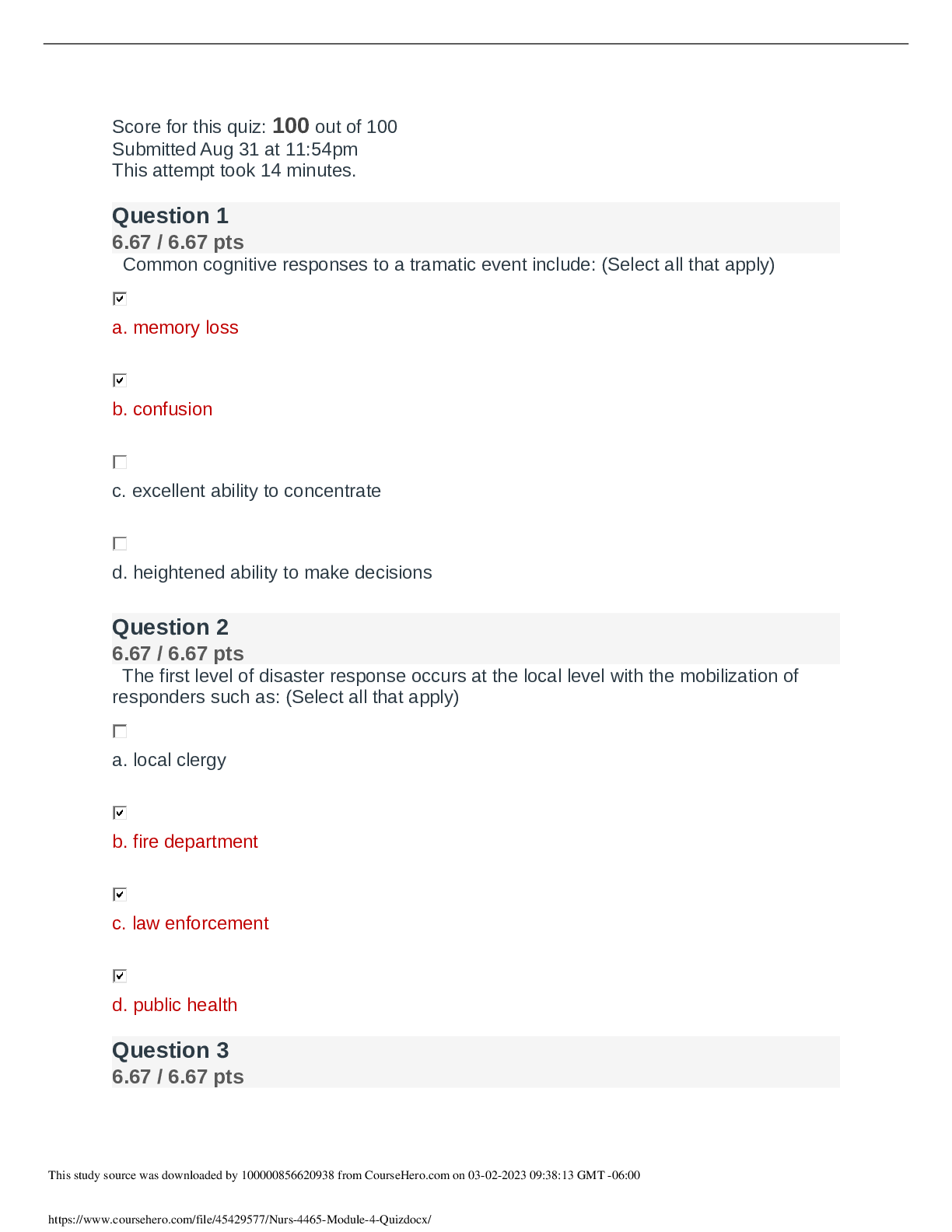
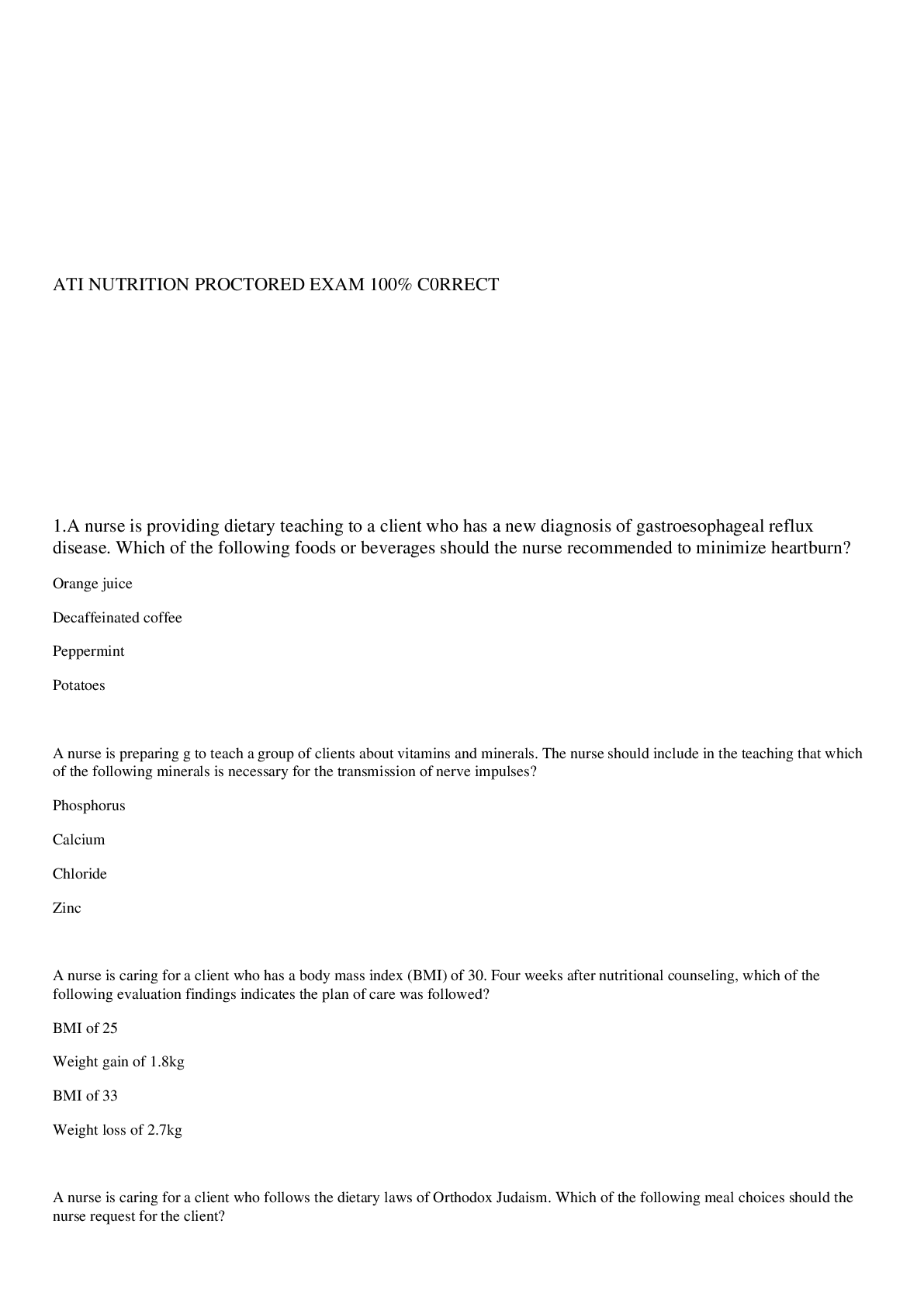
.png)
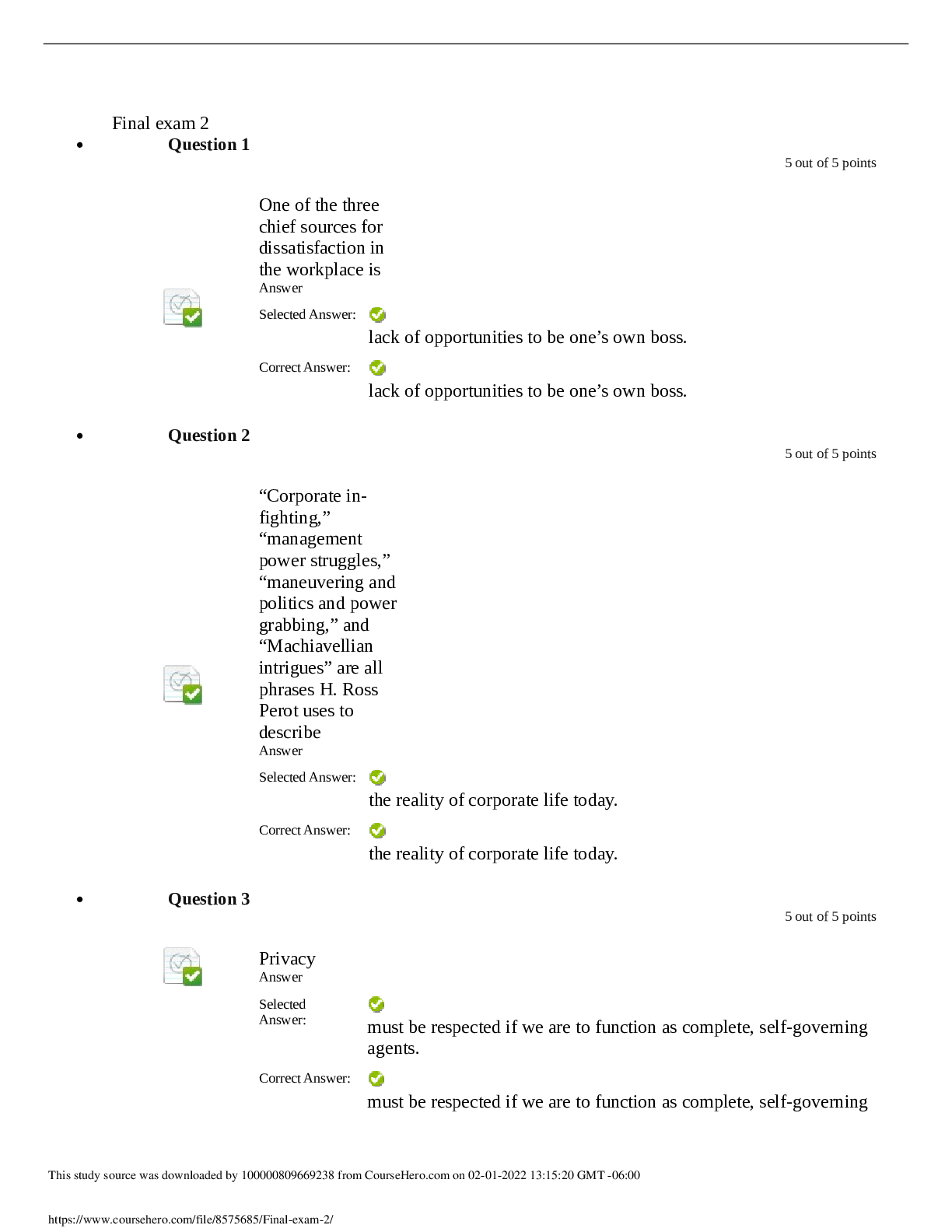
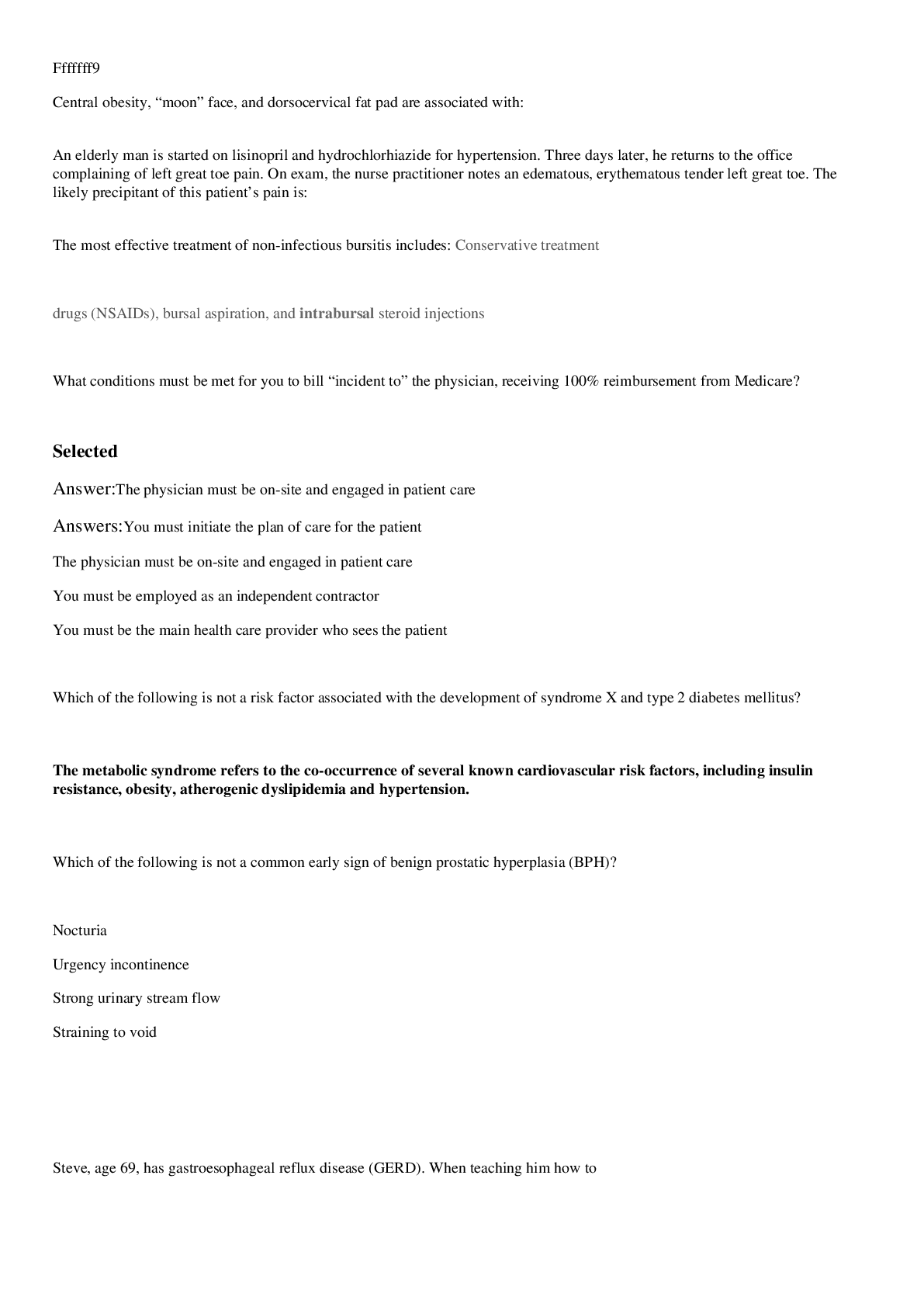
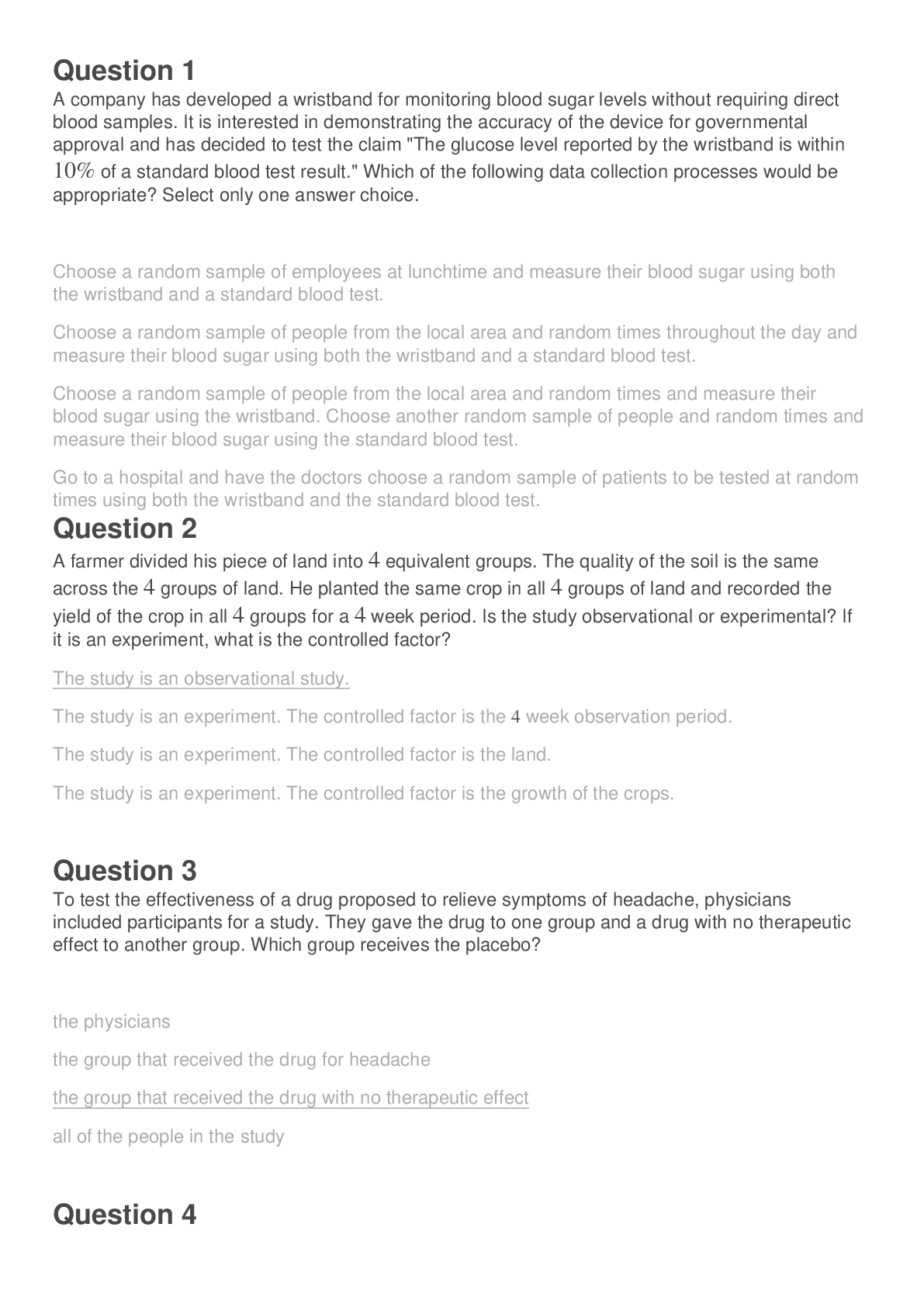
.png)



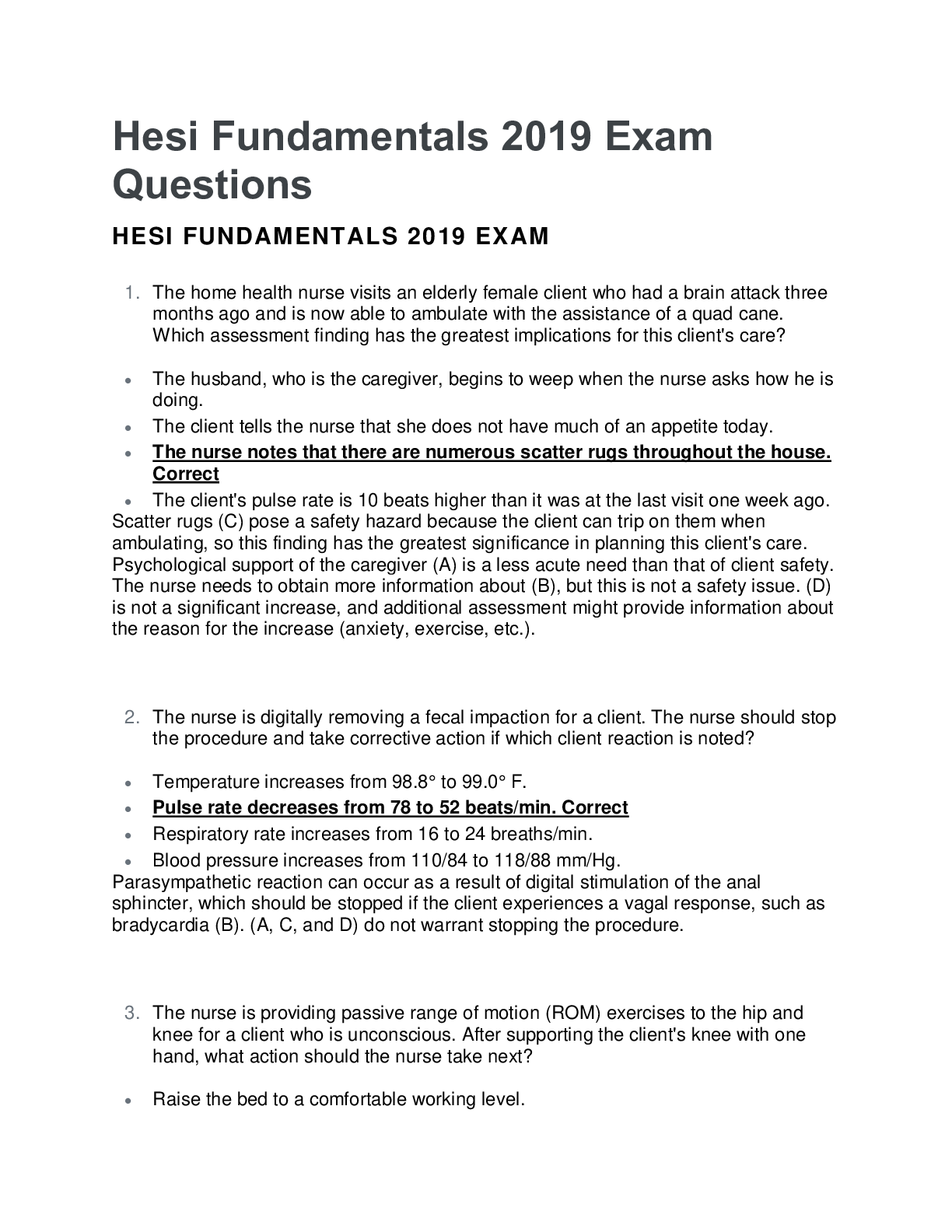
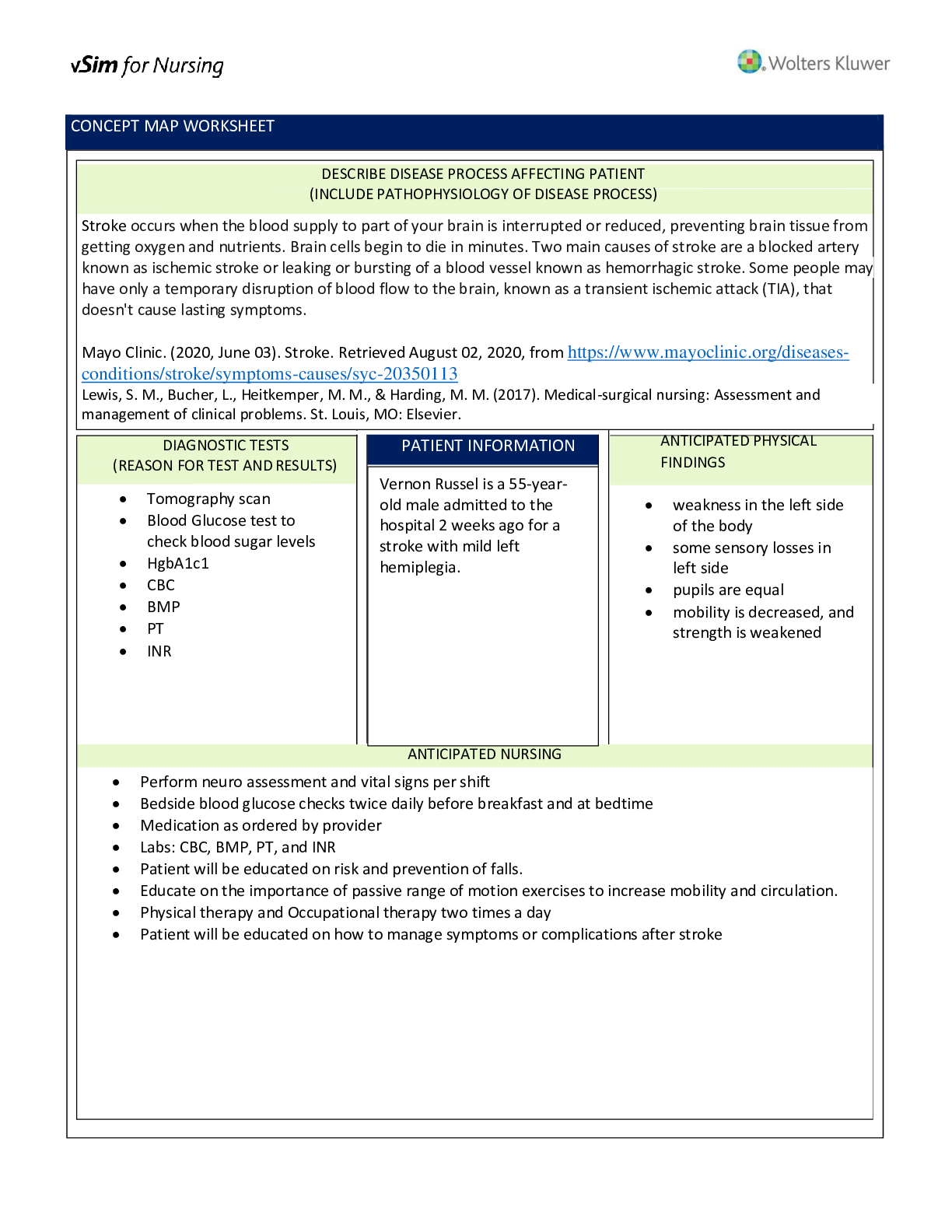
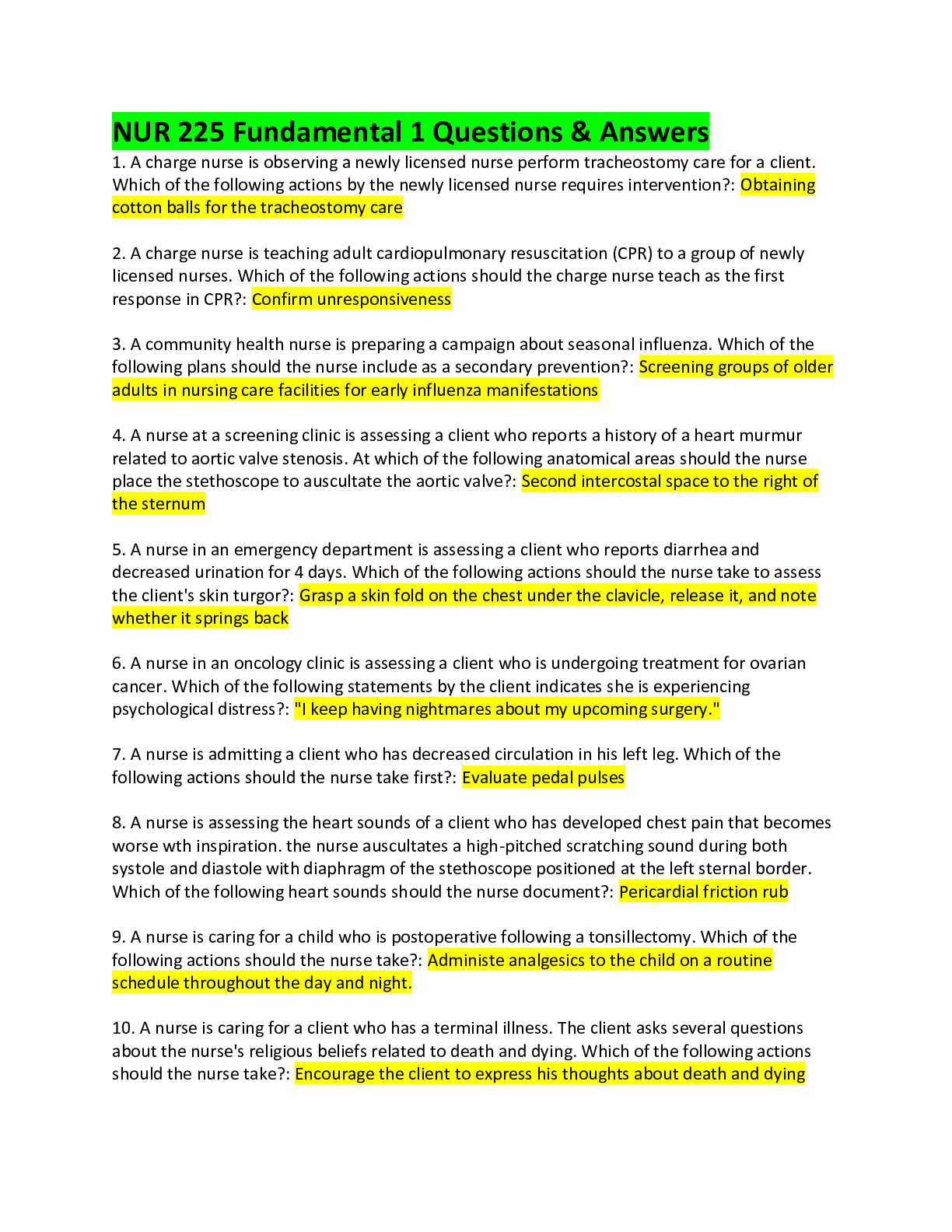


.png)
